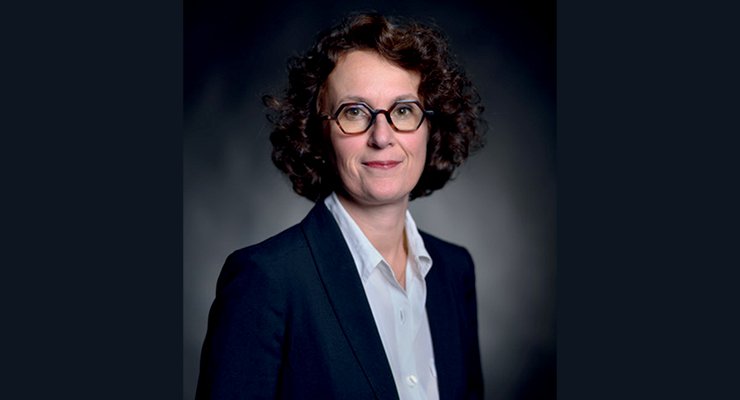UTC governance
In accordance with the national Code of Education, bye-laws and statutes, UTC-Compiegne has several bodies allowing to associate various UTC actors and their partners from industrial sectors and the territorial communities to the strategic decisions of the establishment: an Academic Board, the Scientific Advisory Council, the Committee of Studies and Campus life, the UTC Management Committee, the Committee for Health and Safety and Working conditions, the Technical Committee, the Advisory Council of the doctoral school, the Academic Council for the UTC University Departments…
The Director
The Government-appointed Director (via the French Ministry for HE & Research) is assisted by a Deputy Director and University Steering Committee.
NDLT – UTC enjoys a hybrid status, on one hand, it is an Engineering School (like the other French engineering ‘Grandes Ecoles’) but it also has a derogatory status as a University of Technology. In keeping with past practice and documents, the “Directeur” can also be designated by the Anglo-Saxon equivalents, viz., Principal & Vice- Chancellor (the Chancellor is the Minister).
The UTC Academic Board
The UTC Academic Board is currently chaired by Jean-Louis Chaussade
The UTC Academic Board:
- sets out the general policy of the institution
- decides, subject to national regulations, the general organization of studies
- proposes measures to promote the life of the university community.
- it votes on the budget and approves the accounts; it determines the distribution of positions allocated by the relevant ministers. It authorizes the Director to engage any legal proceedings. It approves the agreements and conventions signed by the Director and, subject to the specific conditions laid down by decree, loans, the acquisition of holdings, the creation of subsidiaries, the acceptance of donations and legacies, and the acquisition of property. It shall exercise disciplinary power under the conditions defined in Articles 712−6−2, L811 5, L811 6, L952 7 to L952 9 of the French Education Code;
- determines the distribution of the budget of the means set aside for training;
- determines the rules related to examinations
- defines the rules for the evaluation of teaching;
- adopts measures to ensure the success of the greatest number of students;
- adopts measures to enable the implementation of student guidance and the validation of previous learning achievements, to facilitate their entry into working life and to encourage cultural, sporting, social or associative activities offered to students, as well as measures to improve living and working conditions, in particular measures relating to support activities, university and school works, medical and social services, libraries and documentation centres and access to digital resources;
- adopts measures aiming at promoting and developing interactions between sciences and Society, initiated and animated by students or lecturer-cum-research scientists, within UTC but also on the ‘territory of influence’ of UTC;
- adopts the necessary measures for the reception and the success of the students with a handicap or an invalidating health disorder, in accordance with the obligations incumbent on the higher education establishments under the terms of article L. 123−4−2 of the Code of Education;
- allocates the budget for research;
- sets the overarching research policy as well as the operating rules of the laboratories;
- adopts measures to enable students to develop activities for the dissemination of scientific, technical and industrial culture;
- appoints the functional Directors;
- may delegate, for a specific period and in a field expressly laid down by deliberation, some of its powers to the Director, with the exception of approval of the establishment contract and the accounts, as well as the budget and the internal rules. The Director shall report to the Board as soon as possible on decisions taken under this delegation.
The Board comprises 28 Governors:
- 14 external personalities (including 3 representatives of local authorities: Compiègne agglomeration, the Oise Departmental Council, the Hauts-de-France Regional Council);
- 3 student representatives
- 8 representatives of the teaching staff
- 3 representatives of the library, engineering, administrative, technical, social and health staff (BIATSS).
The Board meets at least three times a year, convened by its President.
At the request of the Director or at the request of two-thirds of the members of the Board to its chairperson with a specific agenda, the Boartd must also be convened by its chairperson or, failing that, by its vice-chairperson.
The Scientific Advisory Council
The Scientific Advosisory Council is consulted before all decisions taken by the Academic Board in the field of research. It is consulted or can issue wishes as to the orientations of UTC‘s research policies, the diffusion of the scientific, technical and industrial culture and the scientific and technical documentation. It is chaired by the director of UTC and by a Vice-President.
It ensures the links between academic teaching and research.
It comprises 23 members:
- 11 representatives of the lecturer-cum-research staff and research scientists ;
- 3 representatives of the engineering and administrative staff ;
- 6 external personalities ;
- 3 student representatives of PhD students.
The Committee of Studies and Campus life
The Committee of Studies and Campus life proposes to the Board the orientations, as well as the distribution and the organization of the teaching in initial and continuing education.
It is chaired by the UTC-Director and by two Vice-Presidents, one of whom is a UTC undergraduate student.
It also examines the requests for accreditation and the projects of new teaching specialty courses. Finally, it examines all questions related to student life, support activities, the library, university and school social services …
It comprises 32 members:
- 12 representatives of the teaching staff ;
- 12 student representatives ;
- 4 representatives of the BIATSS staff, viz., library, engineering, administrative, technical, social and health staff ;
- 4 external personalities.



